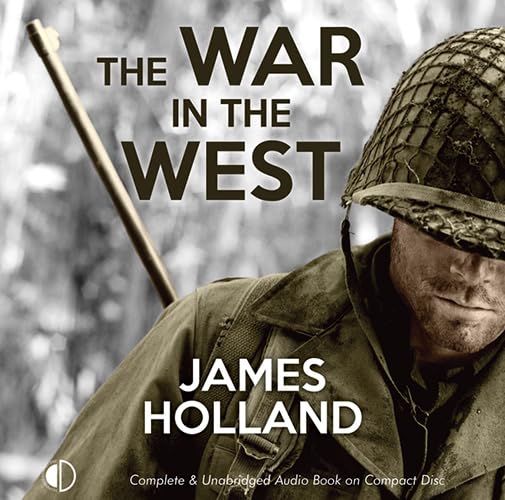


Books in series

#1
The Rise of Germany, 1939-1941
2014
Much of what we think we know about World War II is steeped in myth rather than fact. For seven decades, we have looked at this cataclysmic conflict in much the same way, particularly when it comes to the war in the western theater. In this sweeping narrative history, the first of three volumes, British historian and contrarian James Holland deploys deep research, incisive analysis, and a profound sense of humanity to revise and enhance our understanding of one of the most significant events in history.
It is commonly held that at the outset of war, Germany had the best army in the world, and that Britain barely managed to hold out against it until the Americans declared war and overwhelmed Nazi military prowess with economic might. But the picture looked much different in 1939: In advance of its Polish offensive, Germany was short on resources, tanks, and trained soldiers. Meanwhile, Britain and France had more men in uniform than Germany and considerably greater naval power, and Britain was the richest country in Europe with a massive empire at its disposal. Hitler was bluffing when he called for the wholesale destruction of Poland, but his bet that Western Europe wouldn’t get involved turned out to be fatally wrong.
Beginning with the lead-up to the outbreak of war in 1939 and ending in the middle of 1941 on the eve of the Nazi invasion of Russia, The War in the West, Volume I covers the war on several levels, from fascinating tactical revelations—blitzkrieg, Holland argues, is a myth—to the personal stories of a German U-boat captain, a French reserve officer, a son-in-law of Mussolini, an American construction tycoon, and civilians across the war zone. This is a major history, destined to generate significant scholarly debate and reader interest.

#2
The War in the West
2017
In the second volume of his acclaimed new history of the Second World War, James Holland examines the momentous turning points of 1941–1943: Hitler’s invasion of Russia; America’s entry into the conflict; the devastating Thousand Bomber Raids over Germany; the long struggle in the deserts of North Africa; and the defeat of the U-boats in the crucial Battle of the Atlantic.
As in his first volume, Germany Ascendant, he interweaves his account of the well-known events of the period with the personal stories of individuals caught up in them - on all sides. Through interviews, letters, diaries and reports, he allows us to see the war not just from the perspective of politicians, military commanders and strategists, but also through the eyes of civilians bombed out of their homes, resistance members stranded in the frozen Norwegian winter, sailors risking their lives in the Atlantic convoys, German aces striving for supremacy in the air, and ordinary soldiers battling for survival in the scorching sands of Libya.
He also looks behind the scenes at the all-important ‘machinery’ of war: the manufacturing, farming and vital supply lines that underpinned the entire conflict and ultimately determined its course. From the battle fronts on land, sea and air, to the streets, fields and factories of Britain, America and Germany, he paints a dramatic and compelling portrait of these pivotal years when the tide began to turn.
Combining his own research with only recently accessible archive material, Holland looks afresh at this cataclysmic conflict, reassessing long-held views and challenging conventional assumptions. The result is ground-breaking history that redefines the war in the West and makes us think again about the events that shaped our modern world.

#3
The War In The West
2016
In the second volume of his acclaimed new history of the Second World War, James Holland examines the momentous turning points of 1941-1943: Hitler's invasion of Russia; America's entry into the conflict; the devastating Thousand Bomber Raids over Germany; the long struggle in the deserts of North Africa; and the defeat of the U-boats in the crucial Battle of the Atlantic. From the battle fronts on land, sea and air, to the streets, fields and factories of Britain, America and Germany, he paints a compelling portrait of these pivotal years when the tide began to turn.
Author
James Holland
Author · 37 books
Librarian note: There is more than one author in the GoodReads database with this name James Holland was born in Salisbury, Wiltshire, and studied history at Durham University. He has worked for several London publishing houses and has also written for a number of national newspapers and magazines. Married with a son, he lives near Salisbury.